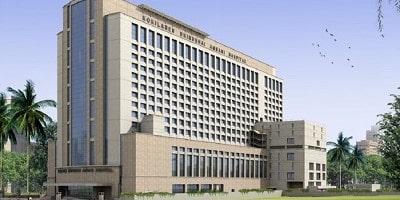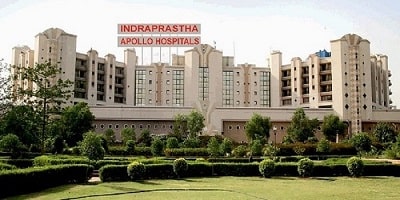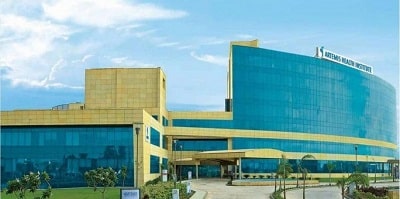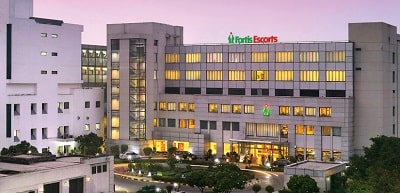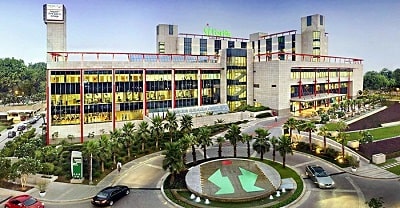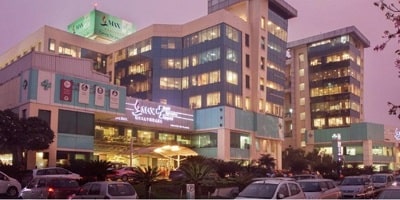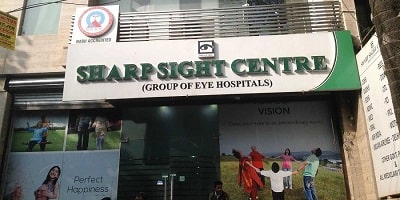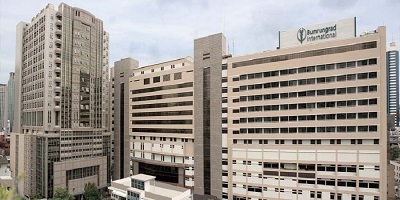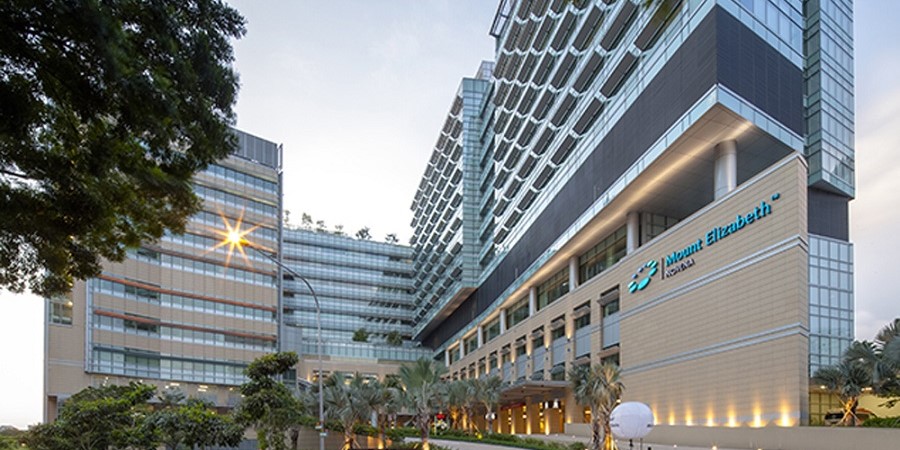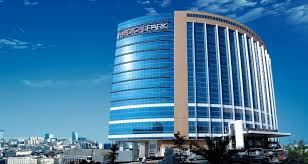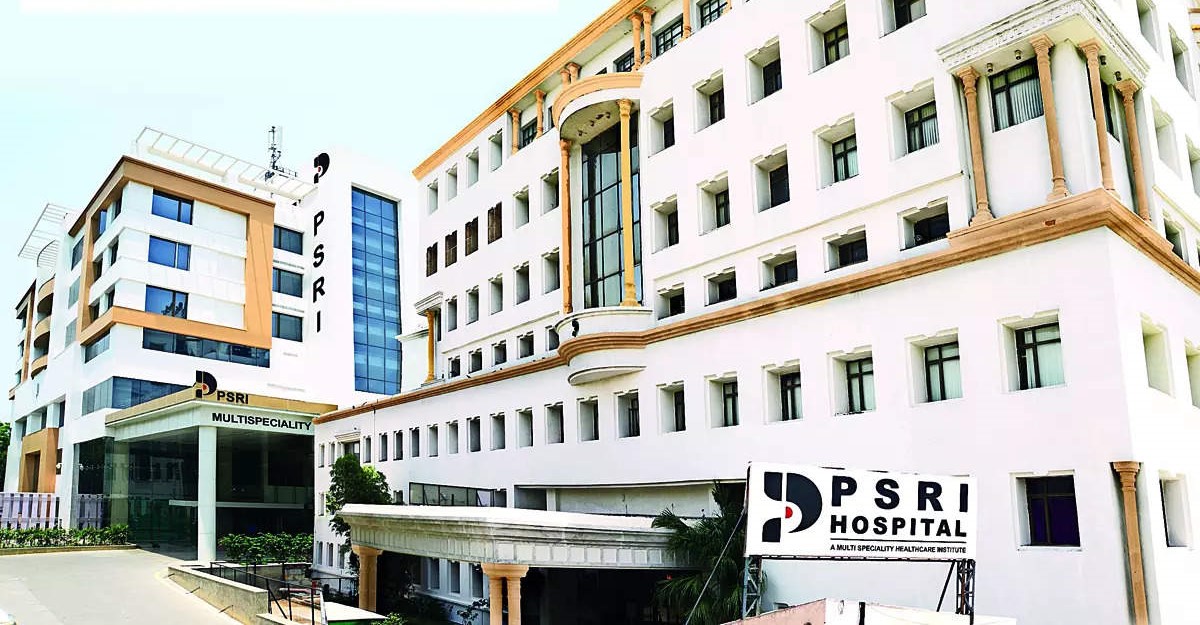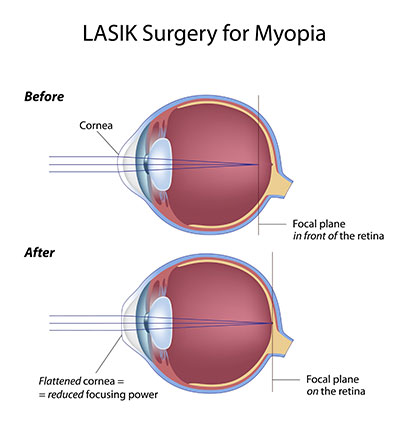
Duration of Treatment
usually takes less than 30 minutes.
Days of Stay
Usually day care procedure and 5 days outside the hospital.
Anesthesia
Sedation
Cost
900 to 1200 USD Per Eye
Best Lasik Eye Surgery Cost in India - Top Eye Hospitals in India
Are you looking for Best Lasik Eye Surgery Cost in India by a top Eye Surgeon and hospital in different cities in India? Get free Query by whatsApp/ viber - + 91 9582708782 or email – treatmentquery@gmail.com)
What is LASIK Eye Surgery?
Purpose
LASIK surgery aims to correct refractive errors in the eye, which occur when the shape of the eye prevents light from focusing correctly on the retina. The primary refractive errors that LASIK can correct are:
- Myopia (Nearsightedness): Difficulty seeing distant objects clearly.
- Hyperopia (Farsightedness): Difficulty seeing close objects clearly.
- Astigmatism: Blurred or distorted vision due to an irregularly shaped cornea.
LASIK Eye Surgery Cost in India
LASIK eye surgery has become increasingly popular due to its ability to correct vision problems such as myopia, hyperopia, and astigmatism. It offers a quick recovery time and eliminates the need for glasses or contact lenses for many patients. If you're considering LASIK eye surgery in India, understanding the costs involved is crucial. Here's a detailed overview to help you make an informed decision.
Factors Influencing LASIK Eye Surgery Cost
Several factors can influence the cost of LASIK eye surgery in India:
1. Type of LASIK Procedure
- Standard LASIK: This is the traditional LASIK procedure and is generally less expensive. It involves creating a flap in the cornea using a microkeratome blade.
- Custom LASIK: Also known as wavefront-guided LASIK, this procedure is tailored to the unique characteristics of each patient's eyes. It tends to be more expensive due to the personalized approach.
- Bladeless LASIK (Femto LASIK): This advanced procedure uses a femtosecond laser to create the corneal flap, making it more precise and safer. It's typically more costly than standard LASIK.
2. Technology Used
- Laser Equipment: The type and quality of laser equipment used can affect the cost. Advanced lasers with the latest technology may result in higher prices.
- Diagnostic Tests: Pre-surgery diagnostic tests like corneal mapping, wavefront analysis, and pupil measurement can add to the overall cost.
3. Surgeon's Expertise
- Surgeons with extensive experience and a strong reputation in performing LASIK surgeries may charge higher fees. Choosing a qualified and experienced surgeon is essential to ensure the best possible outcome.
4. Location
- The cost of LASIK surgery can vary based on the city and the hospital or clinic. Metropolitan cities like Mumbai, Delhi, and Bangalore may have higher prices than smaller towns.
5. Inclusions in the Package
- Some packages may include pre-surgery consultations, post-surgery follow-ups, and medications, while others might charge these separately. It's important to understand what's included in the quoted price.
Average Cost of LASIK Eye Surgery in India
The cost of LASIK eye surgery in India can vary widely depending on the abovementioned factors. On average, you can expect to pay between INR 30,000 to INR 1,00,000 per eye. Here’s a breakdown based on the type of procedure:
- Standard LASIK: 600 to 700 USD per eye
- Custom LASIK: 700 to 900 USD per eye
- Bladeless LASIK (Femto LASIK): 1200 to 1500 USD per eye
Top Hospitals for LASIK Eye Surgery in India
When choosing a hospital for LASIK eye surgery, consider the reputation, technology used, and the expertise of the surgeons. Some of the top hospitals for LASIK eye surgery in India include:
- Dr. Agarwal's Eye Hospital
- Apollo Spectra Hospitals
- Centre for Sight
- Narayana Nethralaya
- L V Prasad Eye Institute
Conclusion
LASIK eye surgery is an effective way to correct vision problems and improve the quality of life. While the cost of LASIK eye surgery in India can vary, it remains relatively affordable compared to many other countries. When planning for the surgery, consider all the factors influencing the cost and choose a reputable hospital and surgeon to ensure the best results.
Investing in your vision is a significant decision, and understanding the costs involved will help you make an informed choice. Always consult with an experienced ophthalmologist to determine the best procedure for your specific needs and ensure a smooth and successful LASIK experience.
Lasik Eye Surgery signs include:
- Nearsightedness (myopia).
- Farsightedness (hyperopia).
- Astigmatism.
Lasik eye surgery risk factor includes:-
- Dry eyes.
- Glare, halos and double vision.
- Undercorrections.
- Overcorrections.
- Vision loss or changes.
- To identify the diagnosis doctor advised going for complete evolution - usually blood investigation, measuring corneal thickness, refraction, corneal mapping, eye pressure, and pupil dilation.
- Before the operation, you’ll be asked to sign a consent form, which gives the surgeon permission to carry out the treatment.
- The doctor should be informed about any medication that the patient may be taking.
- The patient is admitted to the hospital on the same days before the procedures.
- Thinners medicines may have to stop before 3 days of surgery.
- The Lasik Surgery Cost starting from 900 to 1200 USD the cost varies depending upon City, hospitals, Eye surgeon’s qualifications & experience.
Step 1 – Anesthesia: Lasik eye surgery usually takes less than 30 minutes and does not require any anesthesia; they use to give mild sedative that is common with LASIK.
Step 2 – The incision: In Lasik eye surgery the surgeon makes a thin flap in the cornea is created using either a microkeratome blade or a femtosecond laser. The surgeon folds back the flap, and then removes some corneal tissue underneath using an excimer laser. The flap is then laid back in place, covering the area where the corneal tissue was removed.
Step 3 – Closing the incisions: The eye surgeon does not flap the skin after the surgery usually, it heals without stitches.
Step 4 –The results: The success rate depends on the patient's condition of eyes and surgeon experience but often offers improved vision without the hassle of glasses or contact lenses. In general, its a good chance of achieving 20/25 vision or better after refractive surgery. Usually more than 8 out of 10 people who've undergone Lasik eye surgery refractive surgery no longer need to use their glasses or contact lenses for most of their activities.
- The doctor will give complete information about post care of surgery, regarding recovery; proper caring of incisions, taking medications and managing.
- Patients are allowed to wear sunglasses to protest eyes for the first week.
- Read books in moderation for the first week.
- After Lasik don’t rub the eyes for one month.
- Need follow-up after 6 months.
The success rate depends on the patient condition of eyes and surgeon experience but often offers improved vision without the hassle of glasses or contact lenses. In general, its good chance of achieving 20/25 vision or better after refractive surgery. Usually more than 8 out of 10 people who've undergone Lasik eye surgery refractive surgery no longer need to use their glasses or contact lenses for most of their activities.
- Are you a board-certified eye surgeon in India?
- How many years’ experience of you has in this field?
- How many surgeries are you doing every day?
- Does your hospital certify to perform Lasik eye surgery?
- Am I a good patient for you for Lasik eye surgery?
- Let me know success rates and how long time will take for recovery?
- What treatment plan do you recommend and Why?
- What are my options if I am not satisfied with the outcome of my treatment surgery?
- What are the advantages and disadvantages of Lasik eye surgery?
- What are the costs involved with this type of Lasik eye surgery?
- How should I prepare for this surgery?
- How long I have to stay in the hospital and outside the hospital?
- What are the risk factors for this type of Lasik eye surgery?
- When can I go for normal activities, including exercise?
- Do I have stitches, staples, and/or bandages?
- Do I have a scar or other permanent effects from the Lasik eye surgery?
- What type of results can I expect?
- Do I need to go to another surgery in the future?
- Do I need any follow-up appointments or tests after my surgery?
Top Doctors
Sorry, There is nothing to show!Come back soon.
Top Hospitals
LASIK EYE SURGERY COST IN INDIA

Duration of Treatment
usually takes less than 30 minutes.
Days of Stay
Usually day care procedure and 5 days outside the hospital.
Anesthesia
Sedation
Cost
900 to 1200 USD Per Eye
Best Lasik Eye Surgery Cost in India - Top Eye Hospitals in India
Are you looking for Best Lasik Eye Surgery Cost in India by a top Eye Surgeon and hospital in different cities in India? Get free Query by whatsApp/ viber - + 91 9582708782 or email – treatmentquery@gmail.com)
What is LASIK Eye Surgery?
Purpose
LASIK surgery aims to correct refractive errors in the eye, which occur when the shape of the eye prevents light from focusing correctly on the retina. The primary refractive errors that LASIK can correct are:
- Myopia (Nearsightedness): Difficulty seeing distant objects clearly.
- Hyperopia (Farsightedness): Difficulty seeing close objects clearly.
- Astigmatism: Blurred or distorted vision due to an irregularly shaped cornea.
LASIK Eye Surgery Cost in India
LASIK eye surgery has become increasingly popular due to its ability to correct vision problems such as myopia, hyperopia, and astigmatism. It offers a quick recovery time and eliminates the need for glasses or contact lenses for many patients. If you're considering LASIK eye surgery in India, understanding the costs involved is crucial. Here's a detailed overview to help you make an informed decision.
Factors Influencing LASIK Eye Surgery Cost
Several factors can influence the cost of LASIK eye surgery in India:
1. Type of LASIK Procedure
- Standard LASIK: This is the traditional LASIK procedure and is generally less expensive. It involves creating a flap in the cornea using a microkeratome blade.
- Custom LASIK: Also known as wavefront-guided LASIK, this procedure is tailored to the unique characteristics of each patient's eyes. It tends to be more expensive due to the personalized approach.
- Bladeless LASIK (Femto LASIK): This advanced procedure uses a femtosecond laser to create the corneal flap, making it more precise and safer. It's typically more costly than standard LASIK.
2. Technology Used
- Laser Equipment: The type and quality of laser equipment used can affect the cost. Advanced lasers with the latest technology may result in higher prices.
- Diagnostic Tests: Pre-surgery diagnostic tests like corneal mapping, wavefront analysis, and pupil measurement can add to the overall cost.
3. Surgeon's Expertise
- Surgeons with extensive experience and a strong reputation in performing LASIK surgeries may charge higher fees. Choosing a qualified and experienced surgeon is essential to ensure the best possible outcome.
4. Location
- The cost of LASIK surgery can vary based on the city and the hospital or clinic. Metropolitan cities like Mumbai, Delhi, and Bangalore may have higher prices than smaller towns.
5. Inclusions in the Package
- Some packages may include pre-surgery consultations, post-surgery follow-ups, and medications, while others might charge these separately. It's important to understand what's included in the quoted price.
Average Cost of LASIK Eye Surgery in India
The cost of LASIK eye surgery in India can vary widely depending on the abovementioned factors. On average, you can expect to pay between INR 30,000 to INR 1,00,000 per eye. Here’s a breakdown based on the type of procedure:
- Standard LASIK: 600 to 700 USD per eye
- Custom LASIK: 700 to 900 USD per eye
- Bladeless LASIK (Femto LASIK): 1200 to 1500 USD per eye
Top Hospitals for LASIK Eye Surgery in India
When choosing a hospital for LASIK eye surgery, consider the reputation, technology used, and the expertise of the surgeons. Some of the top hospitals for LASIK eye surgery in India include:
- Dr. Agarwal's Eye Hospital
- Apollo Spectra Hospitals
- Centre for Sight
- Narayana Nethralaya
- L V Prasad Eye Institute
Conclusion
LASIK eye surgery is an effective way to correct vision problems and improve the quality of life. While the cost of LASIK eye surgery in India can vary, it remains relatively affordable compared to many other countries. When planning for the surgery, consider all the factors influencing the cost and choose a reputable hospital and surgeon to ensure the best results.
Investing in your vision is a significant decision, and understanding the costs involved will help you make an informed choice. Always consult with an experienced ophthalmologist to determine the best procedure for your specific needs and ensure a smooth and successful LASIK experience.
symptoms
Lasik Eye Surgery signs include:
- Nearsightedness (myopia).
- Farsightedness (hyperopia).
- Astigmatism.
risk factors
Lasik eye surgery risk factor includes:-
- Dry eyes.
- Glare, halos and double vision.
- Undercorrections.
- Overcorrections.
- Vision loss or changes.
preparation
- To identify the diagnosis doctor advised going for complete evolution - usually blood investigation, measuring corneal thickness, refraction, corneal mapping, eye pressure, and pupil dilation.
- Before the operation, you’ll be asked to sign a consent form, which gives the surgeon permission to carry out the treatment.
- The doctor should be informed about any medication that the patient may be taking.
- The patient is admitted to the hospital on the same days before the procedures.
- Thinners medicines may have to stop before 3 days of surgery.
- The Lasik Surgery Cost starting from 900 to 1200 USD the cost varies depending upon City, hospitals, Eye surgeon’s qualifications & experience.
procedure
Step 1 – Anesthesia: Lasik eye surgery usually takes less than 30 minutes and does not require any anesthesia; they use to give mild sedative that is common with LASIK.
Step 2 – The incision: In Lasik eye surgery the surgeon makes a thin flap in the cornea is created using either a microkeratome blade or a femtosecond laser. The surgeon folds back the flap, and then removes some corneal tissue underneath using an excimer laser. The flap is then laid back in place, covering the area where the corneal tissue was removed.
Step 3 – Closing the incisions: The eye surgeon does not flap the skin after the surgery usually, it heals without stitches.
Step 4 –The results: The success rate depends on the patient's condition of eyes and surgeon experience but often offers improved vision without the hassle of glasses or contact lenses. In general, its a good chance of achieving 20/25 vision or better after refractive surgery. Usually more than 8 out of 10 people who've undergone Lasik eye surgery refractive surgery no longer need to use their glasses or contact lenses for most of their activities.
post procedure
- The doctor will give complete information about post care of surgery, regarding recovery; proper caring of incisions, taking medications and managing.
- Patients are allowed to wear sunglasses to protest eyes for the first week.
- Read books in moderation for the first week.
- After Lasik don’t rub the eyes for one month.
- Need follow-up after 6 months.
success rate
The success rate depends on the patient condition of eyes and surgeon experience but often offers improved vision without the hassle of glasses or contact lenses. In general, its good chance of achieving 20/25 vision or better after refractive surgery. Usually more than 8 out of 10 people who've undergone Lasik eye surgery refractive surgery no longer need to use their glasses or contact lenses for most of their activities.
faqs from doctor
- Are you a board-certified eye surgeon in India?
- How many years’ experience of you has in this field?
- How many surgeries are you doing every day?
- Does your hospital certify to perform Lasik eye surgery?
- Am I a good patient for you for Lasik eye surgery?
- Let me know success rates and how long time will take for recovery?
- What treatment plan do you recommend and Why?
- What are my options if I am not satisfied with the outcome of my treatment surgery?
- What are the advantages and disadvantages of Lasik eye surgery?
- What are the costs involved with this type of Lasik eye surgery?
- How should I prepare for this surgery?
- How long I have to stay in the hospital and outside the hospital?
- What are the risk factors for this type of Lasik eye surgery?
- When can I go for normal activities, including exercise?
- Do I have stitches, staples, and/or bandages?
- Do I have a scar or other permanent effects from the Lasik eye surgery?
- What type of results can I expect?
- Do I need to go to another surgery in the future?
- Do I need any follow-up appointments or tests after my surgery?
Top Doctors
Sorry, There is nothing to show!Come back soon.
